AI-Driven Content Distribution & Management in Travel and Hospitality
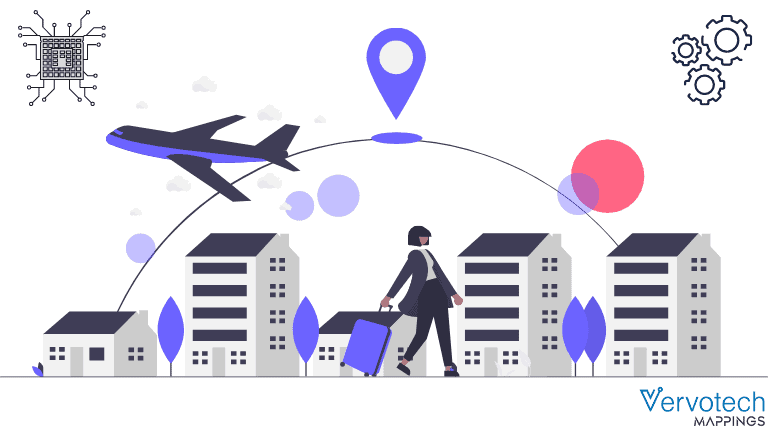
AI-Driven Content Distribution and Management is very important as we are entering into a new world of possibilities – the era of technological innovation! With major advancements in the technological capabilities of businesses, the limits are being pushed harder and further than ever before and at the core of this new world of possibilities, lies the twin pair of AI and ML, the holy grail and the hottest topic of discussion across global business circles. Therefore, it is essential that businesses today not only understand the meaning of these two terms and the ways that they are constantly impacting their industries but also incorporate the same into their existing mix so as to remain relevant within their market. So, what exactly are AI and ML? How are AI and ML being used by modern businesses when it comes to managing and distributing their content across their networks? These are some of the questions that we come across frequently, so let’s take a closer look at these two terms and strive to unravel the secrets behind the pair! What is AI and ML? AI or Artificial Intelligence, as the name suggests, is the simulation of human intelligence by modern machines through the process of repeated learning, correcting and reasoning. A machine, while being incapable of making decisions by itself, can process a large number of data sets quickly in order to reach certain conclusions. Once such conclusions are met, a machine can quickly identify whether that conclusion is favourable or unfavourable in nature. If the conclusion is unfavourable, the machine can quickly repeat the entire process till a favourable condition is met. Once this condition is met, the machine then registers that process and can apply it each time to reach a favourable conclusion without fail. This is called Machine Learning. Therefore, it can be seen that Artificial Intelligence and Machine Learning are intricately linked to each other where the application of Machine Learning leads to further models of AI with progressive levels of intelligence. We can then safely conclude that Machine Learning is a subset of Artificial Intelligence that continuously feeds computer systems with large amounts of data so that they can build relationships between data-sets and apply the same to the data-sets that are being fed. AI and ML in Travel and Hospitality Systems in the travel and hospitality sector aren’t much different – companies are increasingly applying AI-Driven Content Distribution into their technologies so as to make the systems faster and more efficient. When working with large sets of data, software that relies on AI and ML can quickly quantify data-sets in order to reach meaningful conclusions thus making the entire system extremely fast and accurate. For example, a supplier may be delivering content to multiple different sources multiple times a week. Since listings change quickly, it is essential that this data or content is constantly updated so as to provide the best possible listings to customers and cut down on losses due to erroneous listings. Here, a supplier may use AI and ML to automate the entire process where new listings will be automatically sent to specified points thus cutting down on valuable time and resources. Modern travel agencies need to constantly update their platforms and reflect the latest changes in bookings so as provide their customers with the most updated and accurate data possible. However, most of these travel agencies tend to work with multiple suppliers who are feeding data into their systems continuously. It is quite understandable that duplicates and inconsistencies will be present in the data when it is being consolidated from multiple sources. Therefore, this travel agency may apply AI-Driven Content Distribution in order to consolidate all incoming data and quickly identify the duplicates and get rid of them then and there. As it can be seen from the above two examples, AI and ML can be applied in every field in order to make the process more efficient, fast and intuitive. Whether you are a supplier who is supplying data to multiple sources or a travel agency that is consolidating data from multiple suppliers, you can use incorporate AI and ML into your existing systems in order to make them more efficient. AI and ML in Vervotech Mappings We, at Vervotech, believe in the power of technology to transform the entire value chain. With that thought process in mind, we developed Vervotech Mapping, a fully automated hotel and room mapping service that leverages the power of AI and ML to sustain coverage of 98% with an unmatched accuracy of 99.999%. These figures would not have been achievable without the incorporation of AI and ML into the mix. This divine pair has allowed us to not only develop a software that is able to automatically filter all incoming content for duplicates but also updates its servers through cloud-based systems multiple times a day so that our clients have access to the latest data possible. We are building and maintaining supervised and unsupervised ML models for augmentation and algorithm improvements. If you want to learn more about the ways Vervotech Mappings can help your business grow, click here for a guided tour of our features and services. Our support staff is always online and will be happy to guide you through the entire process!Vervotech Mappings is a leading Hotel Mapping and Room Mapping API that leverages the power of AI and ML to quickly and accurately identify each property listing through the verification of multiple parameters. With one of the industry’s best coverage of 98% and an accuracy of 99.999%, Vervotech Mappings is quickly becoming the mapping software of choice for all leading global companies operating in the travel and hospitality industry. To learn more about Vervotech Mappings and the ways it can enhance your business in the long run contact us: sales@vervotech.com
Room Mapping – A Modern Tech
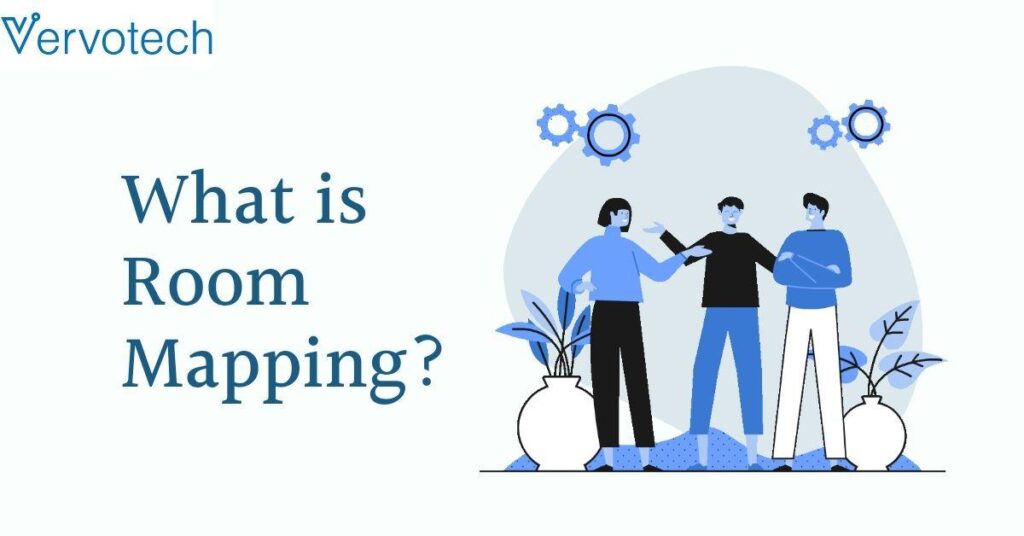
The turn of the millennium brought with it several technologies that completely transformed the global business environment. Technologies such as the internet and social media provided a lot of advantages to many businesses that were aware of the potential of these new media. As a result, the companies that were able to incorporate these newer technologies like Hotel and Room Mapping into their existing mixes enjoyed a certain competitive edge over the companies that relied heavily on traditional technologies. The travel and hospitality sector is no stranger to such changes having constantly transformed itself through the ages depending on the needs and requirements of society. The advent of the internet and social media platforms enabled travel and hospitality providers with a much-needed platform to showcase their listings. The 2000s saw the rise of several online travel agencies that aggressively expanded their markets in new and emerging markets due to the rapid boom of the travel industry. There were several reasons behind the shift in the industry: Shorter travel time between locations Better communication between long distances Easier access to information New and emerging markets in Asia, Latin America and Africa New opportunities through strategic business ventures Rise of the niche industries A shift in the mentality and psyche of people People are much more open towards online booking platforms today when compared to the general population before the internet revolution. This is because the internet provides people with a direct channel to market their products and services thus leading to better relationships between the provider and the consumer. Therefore, niche industries found their footing leading to a lot of more people travelling regularly for their business needs. The hospitality providers needed to understand the shift in the market and orient their ways to better meet the needs and want of their target market. Several technology companies started operations to meet these growing needs of the business when it came to optimizing their business practices. If businesses were to evolve into the digital era, they needed to do away with their archaic technologies and incorporate these newer ones to reach more audiences and provide better services. The shift towards an online business model by travel agencies was a step in the right direction but since the market was new, these companies struggled to find the most optimal ways to sell their products. What is Room Mapping? Room mapping has emerged in the 21st century as one of the leading services in the field that has more or less become a staple over the years. Mapping in the industry ensures accurate and precise data flow between various nodes thus removing duplicate and erroneous listings on any given platform. With modern cloud-based systems being able to handle thousands of transactions simultaneously, the need for proper, updated and unique listings on one’s platform is greater than ever. When a supplier or an OTA works with multiple suppliers or provides data to multiple other sources, mapping that same data and updating it across all channels can become an extremely tedious process. Hotel and room mapping APIs automate the entire process so that inconsistencies within the system can be removed with a simple click. Online Travel Agencies face the issue of duplication when it comes to rooms listed on their website. Every data provider provides each room of a hotel differently but in reality, the same room is listed multiple times with different attributes. Room duplication is a tedious problem since every supplier has different standards when it comes to offering room data. Room Mapping aims to improve the customer experience while finding the right room and optimizes profitability for the business. Room mapping is a process of identifying room level data via multiple parameters, detecting which room listings are the same and discarding duplicate results. It is carried out to display rooms accurately meanwhile sorting them by various filters according to the user’s preference. It is crucial to uniquely identify categories across multiple providers along with Room type, Description, Room ID, Amenities, Bed type, Policy, and much more for a better customer experience. Why Room Mapping? One of the biggest challenges faced by the travel fraternity is the lack of any global standard when it comes to distributing content. Each channel focuses on its own set of rules when distributing content and this makes it extremely hard for suppliers to consolidate the data that is being sent out. It has been established through years of research and simulation that cross table mapping is a multi-step process, i.e., the travel businesses usually send their data to a data management company which then converts that content into their own set of codes which are then represented in a huge XLS table. This process alone, if not automated, can take up to a month depending on the type of data that is being consolidated. This mapped data that is consolidated is then sent to the various travel businesses for sale on their marketplace. As the number of listings and overall conversions on platforms increases, manually mapping and updating this data is next to impossible. An automated AI dependent algorithm that instantly maps the data that is being consolidated across various supplier points will readily fasten up the process of mapping. Therefore, room mapping is quickly turning out to be one of the most essential and critical technologies in the travel industry, the absence of which can vehemently hamper the overall potential of any given business. If you want to read more about the history of room mapping and the attributes that you need to focus on, you can read our blog here that discusses in detail the role of accuracy and coverage in room mapping and the ways it can make or break modern travel businesses. You can also click here to learn more about us at Vervotech and the ways our AI-based room mapping API, Vervotech Mappings, are helping leading travel businesses worldwide consolidate their content.Vervotech Mappings is a leading Hotel Mapping and Room Mapping API that leverages the power of AI and ML to
3 Ways Metaverse Can Impact the Accommodation Industry
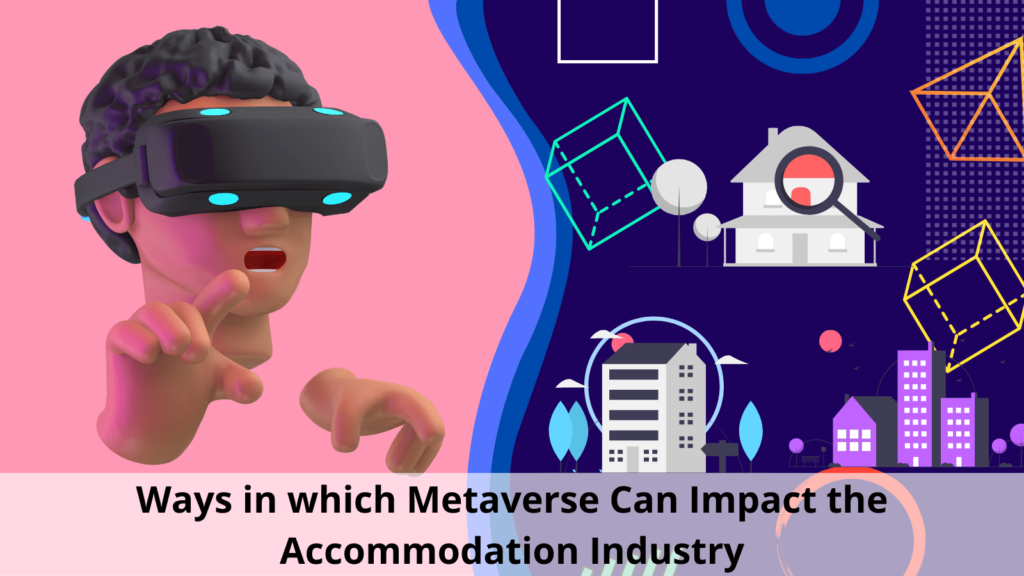
Metaverse has become the hottest buzzword that has gained popularity within a few months of its announcement. It is expected to become the next Internet revolution. Thanks to Mark Zuckerberg, CEO of Facebook who unveiled the rebranding of his social networking company Facebook to Meta Platforms. Ever since the announcement, metaverse has got everyone’s attention. From brands such as Adidas, Nike to tech companies such as Microsoft, Nvidia, every company wants a slice of the metaverse. According to a Bloomberg Intelligence report, the metaverse market is expected to reach $800 billion by 2024. What is Metaverse? Metaverse was first coined in 1992, by sci-fi author Neal Stephenson in his novel Snow Crash, where he envisioned a digital 3D world in which users turned into avatars and interacted in a shared online space. It is a parallel interactive world that leverages augmented reality (AR), virtual reality (VR), and mixed reality (MR) where users can virtually live within a digital world with the help of digital avatars. It will be more like our real world, where people can play games, celebrate birthday parties, go to a concert, work, shop and even own a piece of land! However, everything about metaverse is hypothetical, yet. The irony is despite being hypothetical for now, It has seen massive investments. For example, in late November 2021, digital asset investor Tokens.com purchased a virtual plot of land in the Decentraland metaverse platform for $2.4 million worth of cryptocurrency. And digital real-estate is just soaring high, making it a multitrillion-dollar market. Even though we are years away from it, the investments and rapid developments could make it a reality soon. And after retail and tech companies’ big bets on the virtual world, the hospitality industry must definitely try to incorporate metaverse too. Metaverse in Hospitality Industry Global travelers rely heavily on modern technology, especially the younger generations such as millennials and Gen Zs. From mobile check-in, bots, to QR-coded menus, technology has become the backbone of a successful guest experience. Metaverse can take the personalized guest experience to the next level. If hotels bring a flavor of a metaverse in their customer experience strategy, then there could be a huge potential for them to improve their business performance and revenue. Let’s find out three ways metaverse can transform the accommodation space. 1. Redefine guest booking experience When the modern traveler plans for any holiday trip, they expect a smooth and memorable journey. And it begins right from accommodation research. With metaverse, OTAs and hoteliers can provide their customers with a first-hand experience of room booking, such as room size, amenities, value-added services, etc. This ‘try before you buy’ experience will give a sense of confidence to the traveler before booking their stay. Additionally, this will increase the direct booking rate and improve business revenues. Recommended: Five Ways World Travel Industry Digitalizing Journeys 2. 3D virtual hotel tours Who wouldn’t love a virtual hotel or resort tour before finalizing a hotel property for a holiday or business trip? Many companies offer virtual, 360-degree, 3D hotel tours to attract visitors, but with metaverse in place, travelers can be transported to the hotel property and virtually walk through the entire property and decide whether it matches their tastes. This will make it easier for them to choose and help hoteliers to gain more customers and get an edge over their competitors. 3. Virtual itinerary According to a new study, more than eight in ten American Gen Z and millennial travelers desire a unique experience for their next trip. With metaverse, hotels and resorts can give their guests a virtual itinerary about the nearby landmarks, museums, historical sights, etc. that can enrich their experience. Additionally, hotels can even offer personalized itineraries based on their needs and likings, which will improve guest engagement and help hotels remain competitive. Recommended: Five Emerging Technology Trends in Travel Industry What is the Future of Metaverse? Metaverse in the hospitality industry will create a personalized experience that will build brand loyalty. Currently, there is a mixed reaction for metaverse in the hospitality industry. Thought leaders are seeing a huge market for metaverse, while some believe it can’t replace the feeling of authentic traveling through digitization. However, consumers, especially the younger generations are excited about metaverse. Once metaverse is in action, only the early adopters can reap its benefits. Now is the time to identify where and how can the accommodation industry accommodate metaverse to satisfy the changing needs of tech-savvy travelers.Vervotech Mappings is a leading Hotel Mapping and Room Mapping API that leverages the power of AI and ML to quickly and accurately identify each property listing through the verification of multiple parameters. With one of the industry’s best coverage of 98% and an accuracy of 99.999%, Vervotech Mappings is quickly becoming the mapping software of choice for all leading global companies operating in the travel and hospitality industry. To learn more about Vervotech Mappings and the ways it can enhance your business in the long run contact us: sales@vervotech.com
5 Reasons Why Your Travel Company Needs Hotel and Room Mapping Tools
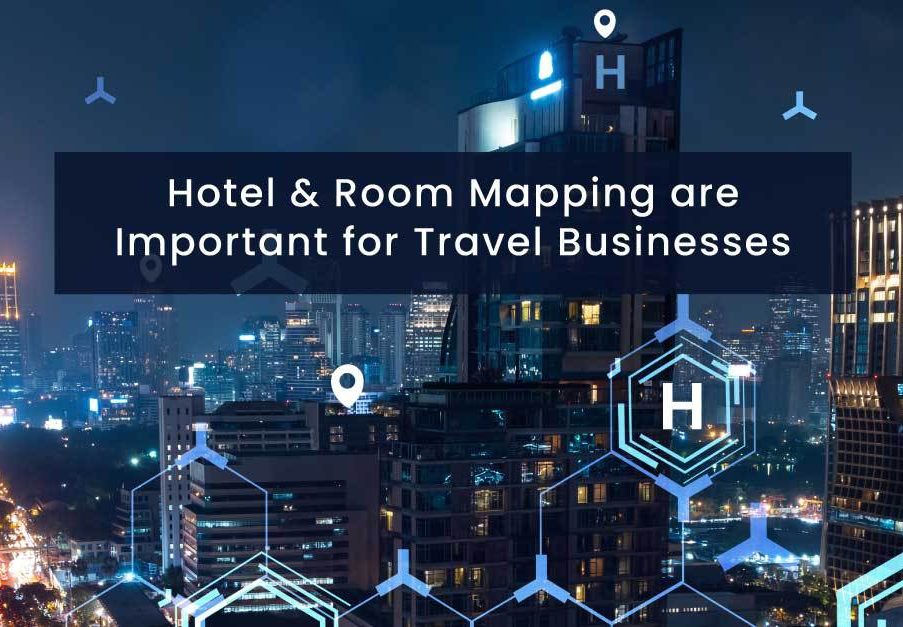
Are you an OTA or hotel distributor? Do you end up paying a refund to your customer by selling the wrong hotel or room due to duplicate or wrong or poor inventory description? If yes, then you need to understand hotel and room mapping. Currently, the accommodation segment of the hospitality industry relies on multichannel distribution to gather hotel data. Different accommodation providers such as metasearch, OTAs, tour operators, bed banks, consolidators, intermediaries, and suppliers, display the unique names of the exact same hotel or room, leading to duplication and bad customer experience. This ongoing industry-wide challenge can be solved through hotel and room mapping tools. Hotel mapping tool aggregates data of various hotel properties from different sources, resulting in standardized and unified hotel data. Some of the hotel data are hotel name, hotel address, geocodes, property type, hotel images, etc. Whereas room mapping tool works in a similar fashion as hotel mapping. It intelligently analyzes, identifies and sorts multiple rooms sent by different suppliers via various parameters such as room type, amenities, bed type, description, policy, etc., so that the same room does not get listed on your portal twice. Let’s dive into why your travel company needs hotel and room mapping tools. Why Hotel & Room Mapping are Important for Travel Businesses Here are five reasons why any business that sells hotels or rooms should invest in hotel and room mapping tools. #1 Remove duplicate hotel and room listings When tour operators or OTAs source hotel data from more than one supplier or distribution partner, there is a possibility of duplicate hotel data and inconsistent hotel listings. This duplication issue can hurt your travel business and end-user experience. To solve this, every travel business must invest in hotel mapping software. Automated hotel level mapping tool delivers standardized hotel data for each property and removes duplicate listings from your hotel inventory. Similarly, room level mapping provides enriched room content, both descriptive and illustrative, with zero duplicates. Recommended: Hotel Data Duplication: How To Solve The Growing Challenge For Hospitality Industry #2 Up-to-date hotel and room data Did you know your travel platform could be selling stale hotel content that could impact your business and customer experience? Stale content majorly occurs when you don’t keep up with the constant changes that hoteliers make, such as room availability, address change, new upgrades in amenities, etc. The ideal way to optimize hotel and room data is through mapping tools. Hotel and room mapping removes outdated and incorrect information and provides an up-to-date hotel property list and room content. This will ensure that your platform has the freshest content for your customers, enhancing your customer retention and brand loyalty. #3 Maximum hotel inventory coverage Did you know OTAs, tour operators sell only 60% of the hotel inventory? This results from unmapped hotel inventory, leading to business loss and missed booking opportunities. Hotel and room mapping gives you a business advantage to sell hotel inventory that was previously out of sight to customers. Currently, leading mapping providers offer maximum hotel coverage of 98%. #4 Hotel data ownership on distribution channels As an accommodation provider, it’s easy to lose ownership of your data in the swarm of multichannel distribution. But with the implementation of hotel and room mapping, you instantly regain control over how your data is showcased on distribution channel websites or portals. Mapping ensures that any change in your property listings is instantly reflected in the master database of the distribution partners. This way, irrespective of how often your data is distributed, you have complete ownership of your hotel and room data. #5 Smooth content distribution Due to the fragmentation of distribution channels, it becomes difficult for travel businesses to distribute hotel and room content efficiently. This causes data inconsistency, data unavailability, data loss, stale data. The good news is hotel and room mapping simplify hotel content distribution smartly, letting travel businesses focus on revenue-generating tasks and business-critical functions. As a travel business, you must have hotel and room mapping in your distribution strategy. Without mapping, your platform might have duplicate listings, inaccurate data, stale information, which can directly lead to revenue leakage, impact your customer booking experience and put your brand reputation at stake. It’s time to leverage technology, make mapping part of your business strategy, and deliver a frictionless end-user experience. Vervotech is a leading Hotel Mapping and Room Mapping API that leverages the power of AI and ML to quickly and accurately identify each property listing through the verification of multiple parameters. With one of the industry’s best coverage of 98% and an accuracy of 99.999%, Vervotech is quickly becoming the mapping software of choice for all leading global companies operating in the travel and hospitality industry. To learn more about Vervotech and the ways it can enhance your business in the long run contact us: sales@vervotech.com
Future of Artificial Intelligence in Travel Technology
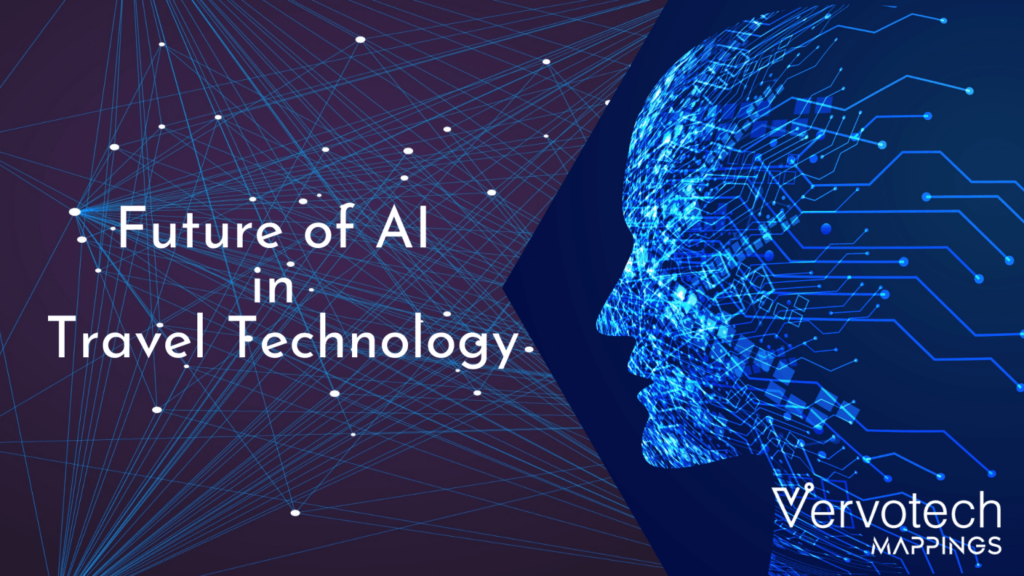
In today’s digital era, technology is advancing at an agile pace. There is no denying the fact that AI is pretty much changing all aspects of our lives. The role of Artificial Intelligence in the business world has increased dramatically over the last decade. In recent years, the use of Artificial Intelligence has increased in a wide range of industries such as financial services, healthcare, hospitality, travel, retail, manufacturing, and many more. With major advancements in the technological capabilities of businesses, the limits are being pushed harder and further than ever before, and at the core of this new world of possibilities, lies the twin pair of AI and ML, the holy grail and the hottest topic of discussion across global business circles. In the following article, we will look at how travel businesses are using the latest artificial intelligence to learn more about their customers and drive more bookings so as to make the most out of the opportunities provided by new and emerging markets. Only by properly scaling the various operations and the technologies incorporated by businesses can these entities ensure viability and sustainability in the long run. Impact of AI on Modern Global Travel Businesses Artificial Intelligence is expected to drive the travel and tourism industry forward immensely in the upcoming years. Travel technologies are offering a wide range of services such as personalization, customer service, value-added services, alternate options, and many more. Countless travel businesses are increasingly using Artificial Intelligence (AI) to increase personalization, customer loyalty, management, conversion rates so as to not only meet but exceed customer expectations. AI gathers a wealth of valuable data to guide travelers through the entire customer journey, so businesses can use it all in one place to incorporate more personalized services based on the preferences guests have shown you. This gives travelers an enhanced experience driven by predictive services. Recommended: Five Ways World Travel Industry Digitalizing Journeys AI or Artificial Intelligence, as the name suggests, is the simulation of human intelligence by modern machines through the process of repeated learning, correcting, and reasoning. A machine, while being incapable of making decisions by itself, can process a large number of data sets quickly in order to reach certain conclusions. Once such conclusions are met, a machine can quickly identify whether that conclusion is favorable or unfavorable in nature. If the conclusion is unfavorable, the machine can quickly repeat the entire process till a favorable condition is met. Once this condition is met, the machine then registers that process and can apply it each time to reach a favorable conclusion without fail. This is called Machine Learning. Therefore, it can be seen that Artificial Intelligence and Machine Learning are intricately linked to each other where the application of Machine Learning leads to further models of AI with progressive levels of intelligence. We can then safely conclude that Machine Learning is a subset of Artificial Intelligence that continuously feeds computer systems with large amounts of data so that they can build relationships between data-sets and apply the same to the data-sets that are being fed. Hospitality is one of those industries where the rise of technology is having a significant impact on the way hotels function today. Companies, even at the level of individual hotels, are now working alongside or in collaboration with automated digital processes so as to share data among themselves and drive profits. Companies are starting to understand the importance of a seamless customer experience when it comes to availing services in the sector and is increasingly sharing data with each other so as to build symbiotic relationships within the fraternity that benefits all entities involved. Artificial Intelligence technology can be introduced at almost any stage of the traveler’s consumer experience. By introducing AI technology to hotels, nations can reach out to travelers and fulfill their expectations and desires which changes the dynamics of the hotel industry. At the same time, guests are becoming more committed and loyal to hotel brands and would not hesitate to share their experiences with their peers. Travelers who want a more personalized and customized experience in their hotels would spend less time searching for the perfect fit and receive almost tailor-made offers. This increases customer loyalty, drives brand value, and ultimately adds to the profits of the organization. Recommended: The New Traveler Needs Future of Artificial Intelligence in Travel & Hospitality Now that we understand the ways AI can seriously impact business practices and solutions in a modern context let’s focus on the ways companies are using this AI technology to their advantage. As discussed above, AI can automate tasks that traditionally required human cognitive functions thereby saving manpower and resources while reducing errors within the system and speeding up the entire process. We also know by now that customer service and experience are of utmost importance within the travel and hospitality industry and therefore, it comes as no surprise that AI is being increasingly applied in order to properly orient the same according to the needs and the wants of the target market. Some examples of AI that are quite common today are: Chatbots in Online Customer Services Face-to-face customer service Data processing and Analysis Virtual Reality Augmented Reality Internet of Things Voice Recognition and Support Facial Recognition Payment Gateways Recommended: Five Ways World Travel Industry Digitalizing Journeys With opportunities that are as diverse as these, it is easy to understand why companies are becoming more and more reliant on AI and ML to meet all their daily needs. The reduction in errors, operating costs, time, and the overall efficiency of the system is too good to be left alone. Therefore, it is quite understandable that AI will become one of the leading technologies that push the industry to the next digital era. We, at Vervotech, understand the power of technology and are working hard towards providing progressive solutions to everyday problems. Vervotech Mappings, an advanced hotel and room mapping solution, leverages the power of AI and ML to consolidate data from multiple sources and get
How AI and Machine Learning are Enhancing Online Customer Experience in Travel Industry?
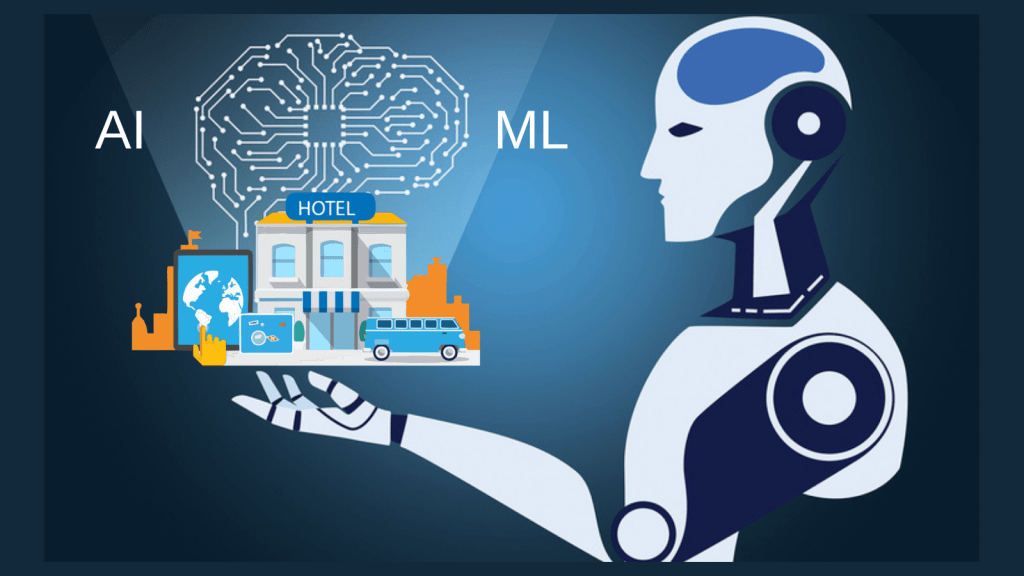
The travel industry is forging ahead in terms of technology in a manner that was quite unprecedented even a couple of years ago. Those bygone days are gone when travel industries had traditional ways of selling. This new-age travel industry is one of the industries where the role of AI and Machine learning has increased exponentially in recent times. Today, customers are seeking more data and answers, more quickly from travel companies before making a purchase decision. Hence it has become far more important for all online travel agencies to adopt new hi-tech technologies that can deliver accurate, frictionless, timely, and customized results to their users. Big travel giants like Expedia, Trivago, Hotel.com, Airbnb have an immense set of data, and they need to analyze this data to bode out it through Predictive Analysis, AI and Machine Learning. So, let’s dig deeper and understand how the travel industry is taking the help of AI and Machine Learning technology to enhance the online customer experience. What is Artificial Intelligence? AI or Artificial Intelligence, as the name suggests, is the simulation of human intelligence by modern machines through the process of repeated learning, correcting and reasoning. A machine, while being incapable of making decisions by itself, can process a large number of data sets quickly in order to reach certain conclusions. Once such conclusions are met, a machine can quickly identify whether that conclusion is favourable or unfavourable in nature. If the conclusion is unfavourable, the machine can repeat the entire process till a favourable condition is met. Once this condition is met, the machine then registers that process and can apply it each time to reach a favourable conclusion without fail. This is called Machine Learning. Therefore, it can be seen that Artificial Intelligence and Machine Learning are intricately linked to each other where the application of Machine Learning leads to further models of AI with progressive levels of intelligence. We can then safely conclude that Machine Learning is a subset of Artificial Intelligence that continuously feeds computer systems with large amounts of data so that they can build relationships between data-sets and apply the same to the data-sets that are being fed. So, where is AI is being applied in the travel industry to enhance the overall operations? Let’s look at some examples: 1. Flight and Hotel Price Prediction: Ever wondered how you get the best deal recommendation of hotels or flights out of such a huge pool of data? Well, it’s all because of the powerful AI/ML technology which automatically monitors the market and provides the best hottest deals. Popular booking websites like booking.com and Trivago operate on history and real-time data which keeps their customers on the website for a long time. For Online Travel Agency portals each visitor is a potential customer and no OTA will ever want to lose them. So, to have an edge in their sales OTA’s use the power of AI/ML to hook new customers and to tempt them to book more trips. 2. Smart Travel Assistance and Responsive customer support: In the fast-paced online world, users surf through several sites before making a purchase decision. In this journey, user travel assistance is important for a smooth booking experience. Today most of the OTA’s are leveraging the power of AI virtual travel assistants and interactive chatbot system which provides seamless and easy assistance to users. Customer support plays an important role in the travel industry, where any user can land on the website anytime for a booking. So, to make the customer journey smooth most of the OTAs are integrating chatbots. According to the HubSpot research report, 71% of people use chatbots to solve their problems fast. Chatbots provides full-fledged customer support 24/7 reducing the load of human customer support. AI/ML leveraged chatbots are an interesting way to keep users engaged and optimize various aspects of customer service. Through a custom programmed chatbot, users can get basic information and answers to FAQs for a smooth user experience. 3. Opinionated Content for Customers: Do you ever leave a site because of inappropriate data shown to you which is not relevant to what you are searching for? Well, this is one of the major pain points for most of the OTA. Today users want relevant and accurate data in less time, and for this OTAs are taking the help of AI/ML. 4. Duplicity Free Content: Imagine you are looking for an exciting awaited trip but while booking online, the same hotel was listed multiple times with different rates. So, would you like to purchase from that booking website? No right? Most of the OTA’s source their hotel data from multiple suppliers. While sourcing the data, multiple suppliers have the same hotel listings with variable rates. 5. Reducing Management Issues: AI/ML technology also helps travellers while travelling. The predictive analysis provides an edge to prevent the hindrances that might come in the way of travellers and hampers their smooth journey. 6. Customized offers for customers: Who doesn’t like loyalty programs? In the travel industry providing special customized offers to customers is the icing on the cake. Today OTAs take the help of AI/ML technology to gather the details of customer behavior and activities and provides them with specially tailored offers. This not only improves the customer experience but also retains loyal customers in the long run.Vervotech Mappings is a leading Hotel Mapping and Room Mapping API that leverages the power of AI and ML to quickly and accurately identify each property listing through the verification of multiple parameters. With one of the industry’s best coverage of 98% and an accuracy of 99.999%, Vervotech Mappings is quickly becoming the mapping software of choice for all leading global companies operating in the travel and hospitality industry. To learn more about Vervotech Mappings and the ways it can enhance your business in the long run contact us: sales@vervotech.com


